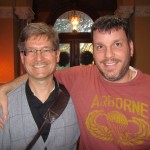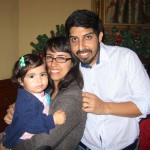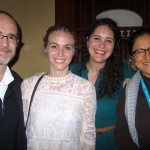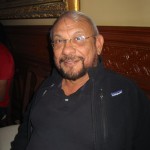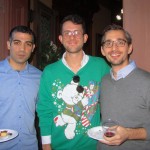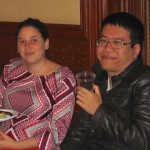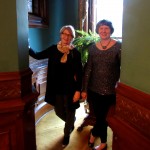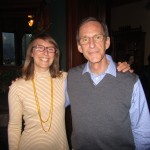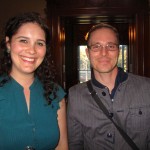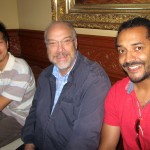Happy Holidays from the Sociology department at UT Austin! Many happy returns and best wishes for 2016!
Monthly Archives: December 2015
Understanding new forms of resistance to domination through French pragmatism and phenomenology
by Maro Youssef
On October 30th, 2015, the Power, History and Society (PHS) working group hosted Professor Bruno Frère for a lecture on resistance to domination, French pragmatism, and phenomenology. Frère’s work is concerned with finding adequate ways of making sense of new forms of resistance to domination, such as those embodied by the anti-austerity indignados, the hacktivist group Anonymous, the international women’s movement, Femen, or the practitioners of “solidarity economy.” As a French social theorist, Frère is particularly interested in the ability of certain theoretical currents to account for these forms of contestation and their potential for emancipation from alienating forces.
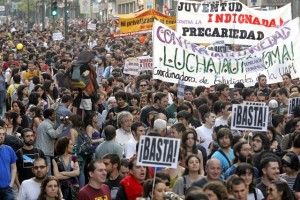
Frère proposes that we utilize French pragmatist sociology in addition to, or in place of, Bourdieusian critical sociology. Frère suggests that Bourdieu’s work rests on the assumption that capitalism and modernity have robbed social actors of their original purity and of the consciousness of their dominated condition. Bourdieu argues that social actors are not equipped to identify and critique their alienation, positioning sociology as the discipline that will save social actors from the alienation of their habitus.
Frère claims that French pragmatism’s phenomenological foundation provides a superior comprehensive model to understand social action and its justification. He suggests that the pragmatist notion of grammar is useful to express the normative macro-elements that motivate local actions and their justifications; phenomenology helps us understand those actions and justifications as fundamental ways of relating to the world that can contradict the lived situation.
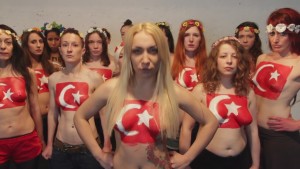
Frère points to four main categories of moral values that solidarity economy (SE) actors deploy: conviviality, self-management, creativity and political activism. Frère calls these values and the discourse around them the “grammar” of the movement. Solidarity economy activists use this grammar to set themselves apart from other groups including leftists, trade unions, or political parties. They avoid terms like “structures of representation,” “hierarchy,” “vertical federations” and “verbal claims” to emphasize their apolitical, non-hierarchical nature.
Solidarity Economy groups often commit “grammatical mistakes” that could threaten their legitimacy. For example, Le Movement Pour L’Economie Solidaire and Les Pénelopes are the two main SE groups in France. They compete for national and international recognition and often make these mistakes during public disputes that highlight their desire to monopolize power and represent the movement as a whole. They quickly recover from public mistakes and revert back to their discourse where they use terms such as “horizontal development,” “anti-authoritarianism,” “political economic practices,” and “direct democracy.”
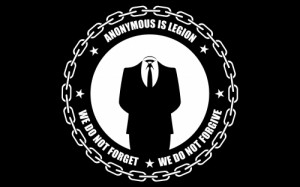
Frère suggests Le Movement Pour L’Economie Solidaire and Les Pénelopes focus on the “self management” aspect of the moral values discussed above in order to avoid grammatical mistakes and remain “authentic.” They may use politics as a solution to correct their grammatical mistakes. Perhaps there could be a rotation within group leadership or perhaps they need to consider the possibility of completely removing representation and having an egalitarian, leaderless movement instead.
Frère’s use of French pragmatist theories that focus on the every day life of the individual and his decision to refrain from using Foucauldian or Bourdiesian theories in his research is unexpected but welcomed. His rejection of Bourdieusian theories of domination gives the actors in social solidarity movements and solidarity economy groups more agency and credit for reflexivity since they are aware of their location in the structure. Frère does not completely dismiss traditional contemporary French theorists work. Instead, he urges scholars to continue to use Pierre Bourdieu’s work to understand managerial domination.
Maro Youssef is a second year Ph.D. student in the Sociology at the University of Texas at Austin. Her research interests include gender, political sociology, culture, social movements, and North Africa and the Middle East.
Exploring Liberation Theology through the lens of Social Sciences
by Paul Kasun
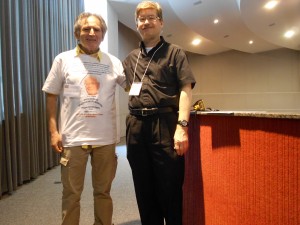
Several weeks ago, I attended a conference of the founders of the Commission for the Study of the History of the Church in Latin America (CEHILA) in Belo Horizonte, Brazil. This year, CEHILA brought together academic scholars to “decolonize” the ideology, practice, and worship of Christianity that has characterized Christian churches in Latin America for centuries, as well as to address the present situation of Christian churches in Latin America and to determine how CEHILA could respond to the present poverty crisis. José A. G. Moreira invited me to the conference because of my interest in Liberation Theology from a sociological perspective. My dissertation focuses on the Mayan K’iche’ of the Western Highlands of Guatemala, so I gave a presentation on the migration of Guatemalans to the United States as a case study to understand the demographics of migration and the influence of migrants on the attitudes of relatives in their home country. Though the conference featured a variety of presentations, I will focus here on just a few.
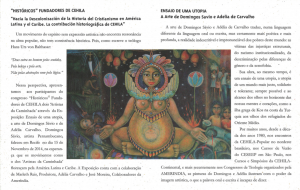
I begin with a painting by Adélia Oliveira de Carvalho, a Brazilian artist, whose work is featured on the CEHILA brochure, poetically expressing the overarching themes of the conference. The indigenous woman in the middle symbolizes the strength of humanity in Latin America, which has withstood centuries of struggles against unjust social structures, organized violence, and institutionalized racism. Around the main figure, Adélia paints various aspects of the Latin American reality, including agriculture, industrialization, war, and assassinations.
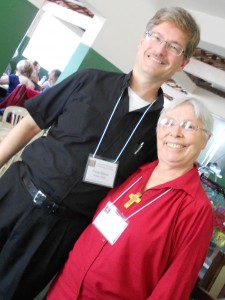
One of CEHILA’s founders and most prolific writers is Enrique Dussel, who is currently editing a volume of his collected works. Of the many challenges facing Christianity in Latin America, Dussel focused on the need to re-examine the work of Karl Marx, specifically his main work, Capital. He openly questioned why liberation theologians have not quoted from Marx’s main book for more than twenty-five years. Rather than seeing the end of liberation theology, Dussel sees the downturn in the fortunes of liberation theology as a temporary win for the social forces of neo-colonialism, neo-imperialism, and neo-liberalism. Inequality and various forms of stratification continue to be extreme in Latin America and Dussel sees the need to strengthen liberation theology by sociological analysis. Moreover, he stated that the future of Christianity is tied to its ability to synthesize with the advances in sociology, specifically in its ability to advance the ethical, philosophical, and economic work of Marx.
Johannes Meier, Paulo Suess, and José O. Beozzo described alternative explanations of the meaning of Christianity, which contrasted with colonial and neo-liberal explanations of Christianity’ meaning. They focused on the point of view of the oppressed, which has been obscured. They asked how have Protestant and Catholic institutions been a part of the oppressive structures of society, and how can that change today? As Pablo Moreno (First Baptist University in Cali, Colombia) argues, Evangelical theology has not synthesized its belief system with social policies that benefit the poor.
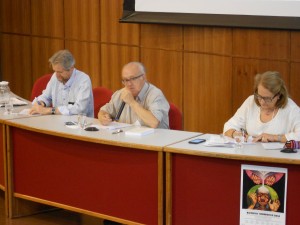
Arguably the most significant moment for Christian churches in Latin America has been during the changes made by the Catholic Church’s Vatican Council II, 1962-1965, and Medellín Scholars Ana María Bidegain, Silvia Scatena, and Mauro Passos discussed how those committed to the poor can use the documents of the Council to advocate for improving the social conditions of the poor. Bidegain focuses on the continued challenges of decolonization, racism, and gender within societies and Christian denominations, while María Luiza Marcílio and Pablo Richard developed themes of de-colonialization in Central America, Brazil, and other parts of Latin America.
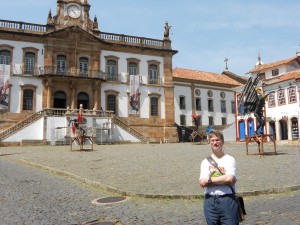
Overall, the CEHILA conference expanded my understanding of the work of Latin American scholars. My own sociological research complemented the work of Latin American liberation theologians, anthropologists, sociologists, and philosophers and their work complemented mine. A take-away from this conference is that a common commitment to see the world through the eyes of the poor, across different disciplines, may be the best chance to build a unified coalition to build a civil society based on humanism.
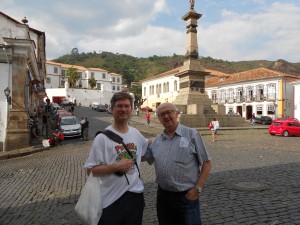
Paul Kasun is a doctoral candidate in Sociology at the University of Texas at Austin. His doctoral research compares the effects of migration in two sending communities in the western highlands of Guatemala. As a Missionary Benedictine priest, he has worked as an immigration advocate helping people primarily from Mexico and Central America.



